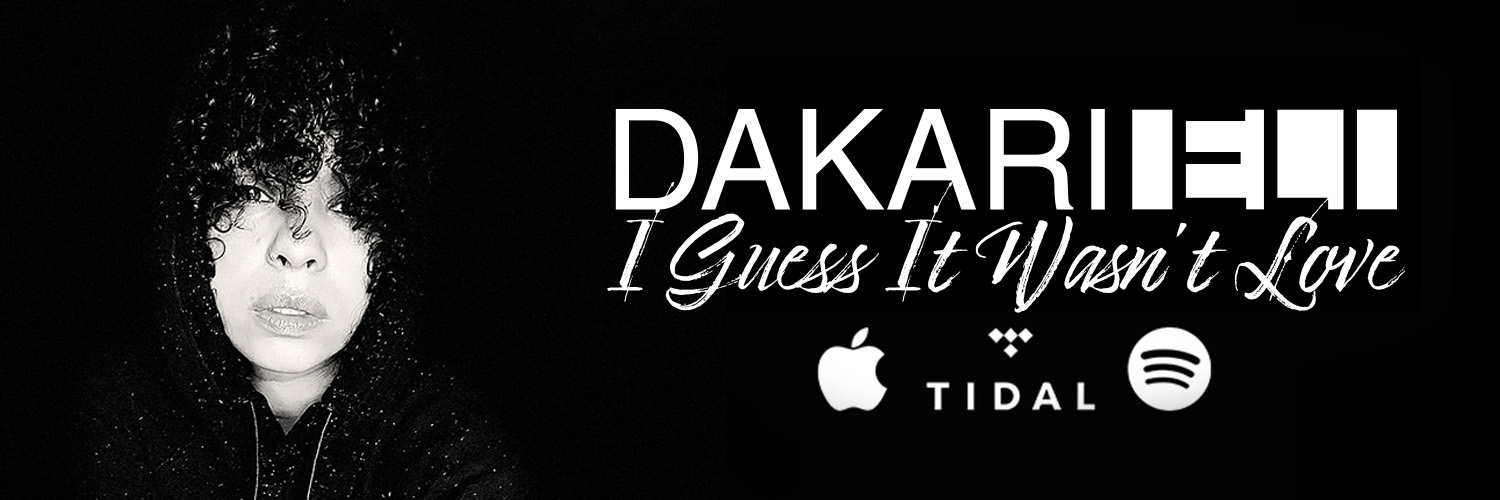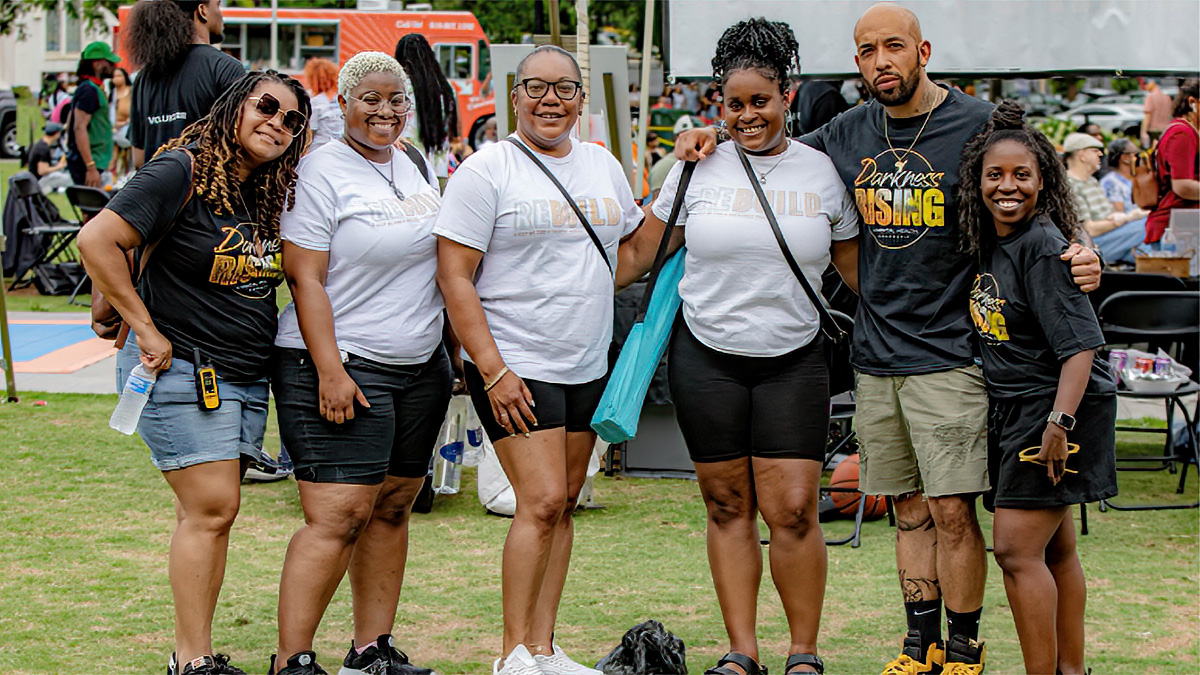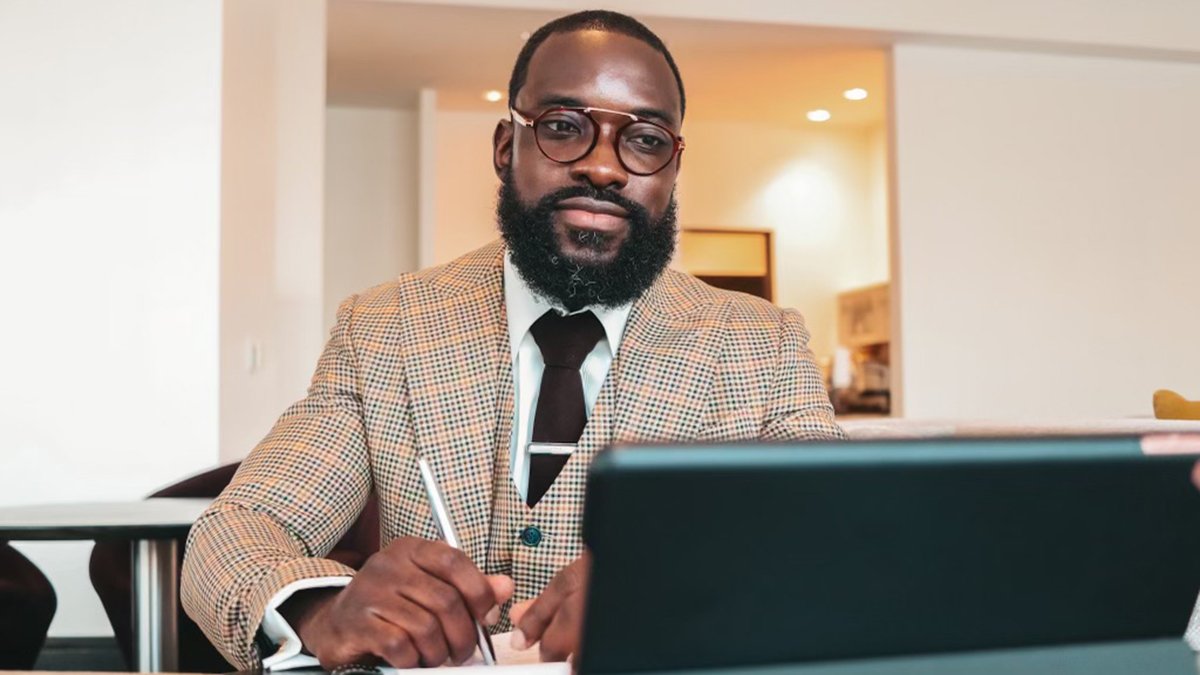Darkness RISING is a beacon of hope for marginalized communities, dedicated to transforming narratives of struggle into stories of resilience. Their mission focuses on improving health, raising mental health awareness, and empowering through resources. Founder Carlita Ector shares how the organization works to erase stigma and break the cycle of recidivism.
Could you delve into the mission of your organization and how it strives to positively impact marginalized communities, particularly those of color?
Darkness RISING’s mission is to improve the health and wellness of marginalized communities, raise awareness about mental health in our community, empower and engage our community via resources, events and services, and erase the negative stigma of mental health issues.
Darkness RISING’s REBUILD program provides free therapy to formerly incarcerated individuals of color. This program provides crucial resources, mentorship, and unwavering support as our community members navigate the transition from incarceration.
How does Darkness RISING tailor its mental health services to meet the specific needs of individuals who have been previously incarcerated, differentiating itself in the provision of these vital resources?
At the heart of our REBUILD program are our dedicated Therapist Connectors. They seek and vet therapists who can cater to the unique needs of each Therapy Seeker. Through weekly check-ins, they ensure that Therapy Seekers receive consistent care and attention throughout their 10-week therapy journey. Darkness RISING’s REBUILD program is unique in that it is the only free program in the US which provides free therapy, employment and wellness stipends for formerly incarcerated people of color. REBUILD staff members learn on the job training and networking skills which provide them with the tools for success and full time employment.
Securing funding is a critical aspect of nonprofit success. Can you share the challenges faced by your organization in this regard and outline ways potential supporters can contribute to sustaining your invaluable services?
Therapy sessions are $100-$270 per session for our Therapy Seekers. After release from incarceration, most of our Therapy Seekers require trauma therapy, with rates on the higher end of the range. Our REBUILD program requires $300,000 for annual funding, a heavy lift for a small nonprofit. Supporters can contribute via our MightyCause fundraising campaign: https://bit.ly/REBUILD23 or through donation links directly on our website: darknessrisingproject.org
The initiative of providing 10 free therapy sessions for formerly incarcerated individuals is admirable. Could you provide examples or success stories illustrating the positive effects of these sessions on individuals and their role in breaking the cycle of recidivism?
“I was incarcerated for 76 months. Having the experience of working for Darkness RISING is so comforting, because I’m supported by people who can relate to my story.” – T. Lewis, Therapy Seeker
“When I was released from prison, I was in a dark and broken place, mentally. With the help of REBUILD and my therapist, I have been able to heal. It meant so much to have people that look like me by my side, helping me get my mental health back together. – J. Giles
Our recidivism rate is less than 2%, with 98% of our Therapy Seekers remaining free from incarceration.
Breaking down barriers and empowering communities is central to your mission. How does Darkness RISING actively engage with the communities it serves to ensure culturally sensitive and effective service delivery?
Darkness RISING’s staff and board are Black community members, many of whom have been impacted by police violence and incarceration. We live, work and exist in the spaces we serve. Our REBUILD Therapist Connectors are from the formerly incarcerated community, and understand the challenges of the transition to society. We actively engage with the formerly incarcerated community, the Black community and communities of color by providing in-person and online resources created by culturally competent therapists.
In what ways does Darkness RISING collaborate with other organizations or partners to maximize its impact on mental health within marginalized communities?
Darkness RISING collaborates with like-minded organizations, forging alliances that extend beyond therapy. These partnerships provide access to housing, employment opportunities, and various resources, aiding justice-involved individuals on their path to holistic recovery and personal growth.
We provide community engagement events for youth, with a focus on suicide and recidivism prevention. Some include: You Matter, a partnership with the City of Raleigh and NC Theatre, youth wellness workshops for Raleigh ACT, and Speak It Into Existence, a youth program in partnership with Colin Kapernick’s Know Your Rights Camp. These events feature live performances by Broadway singers sharing their own mental health journey while encouraging youth to seek mental healthcare, meditations and affirmations for youth mental health, youth panelists speaking about their mental health journeys, and ‘Ask a therapist’, with our Board Member, Tamar Draughn, LPC. Collaboration and support from REBUILD Co-Founder and Advisor Mariame Kaba, BEAM, Laurie M. Tisch Illumination Fund and more play a crucial role in Darkness RISING’s mission.
Through our partnership with StepUp Durham, we have received guidance on best practices for second chance employment, venue space for youth programs, resources and programming for formerly incarcerated youth and families.
Addressing trauma and emotional challenges associated with incarceration is a critical focus. How does your organization approach these issues, and what therapeutic methods or programs are employed to facilitate healing and resilience?
Many of our Therapy Seekers have experienced 18+ months of solitude and/or traumatic experiences during incarceration. Darkness RISING approaches trauma and emotional challenges from incarceration by providing up to 10 free sessions of EMDR therapy, trauma therapy, and cognitive behavioral therapy for our Therapy Seekers.
In our work, we address the harm created by incarceration and police violence by working toward justice and liberation through mental wellness. Recently, we provided therapy for a Therapy Seeker who was in the trial process for an extensive period of time, and was feeling overwhelmed by the media exposure. We received such positive feedback about support provided by our REBUILD therapist.
How does Darkness RISING gauge the success and impact of its programs, particularly in terms of long-term positive outcomes for individuals who have participated in the free therapy sessions?
To measure project performance effectively, we employ a comprehensive data collection process utilizing our website, Findmeatherapist.org and tracking documents. Our commitment to evidence-based practices ensures consistently capturing data to measure the program’s impact. This ongoing assessment includes tracking metrics such as the number of therapy sessions funded, the total participants served, and monitoring the recidivism rate within the program. By collecting this data, we aim to not only fulfill our mission but to also continuously improve and adapt our approach to better serve our communities.
Our Therapist Connectors keep in constant contact with our Therapy Seekers and therapists, ensuring that Therapy Seekers are having helpful, safe experiences in therapy. Through ongoing check-ins via text, phone, email and sometimes in person, we’re able to have conversations about the impact of our resources. More than quantitative data, we receive incredible testimonials from our Therapy Seekers and therapists about the positive impacts of our programming.
Considering the nationwide scope of your services, how does your organization ensure accessibility and reach to formerly incarcerated people of color across different regions, including those in more remote or underserved areas?
Over the past 2 years, our REBUILD Team has conducted extensive research into reentry programs, transitional services, transitional housing, prisons, and reentry care for formerly incarcerated individuals. We have REBUILD therapists in all states nationwide, and we’ve documented our research and developed relationships with these organizations in an effort to provide our free services to underserved areas.
Advocacy is pivotal in promoting awareness and support for mental health initiatives. Can you discuss your organization’s advocacy efforts and how individuals, communities, and businesses can join in supporting the cause?
Darkness RISING advocates for marginalized communities by collaborating with like-minded organizations to create culturally competent resources, meeting with reentry programs, and working towards community care alternatives. Supporters can help our mission by spreading the word about our free resources, donating to our organizational fundraising efforts, and volunteering with Darkness RISING. To support, visit us at darknessrisingproject.org or on our socials: @darknessrisingproject.
Be’n Original






